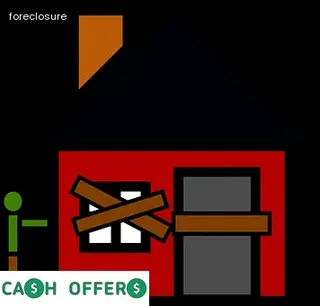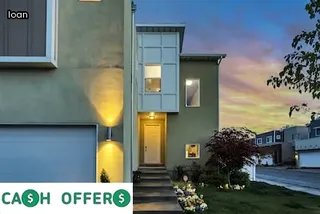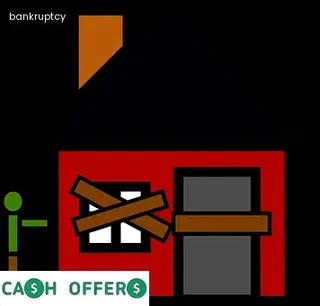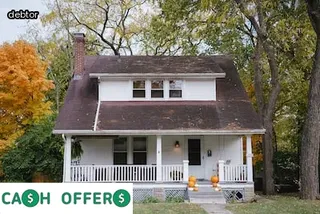Navigating South Carolina's foreclosure laws and process can be a daunting task for homeowners. It is important to understand the basics of South Carolina foreclosure laws, so that you can be aware of your rights and responsibilities as a homeowner.
Foreclosure in South Carolina is a lawsuit brought by the lender to take ownership of the home when the homeowner has not kept up with payments on their mortgage. The lender must file paperwork with the court, notify the homeowner, and follow other legal requirements in order to proceed with the foreclosure.
A homeowner facing foreclosure may have several options available, including loan modification, forbearance agreements, or repayment plans. Additionally, homeowners should be aware of their right to redemption after foreclosure; this gives them certain rights to reclaim their property if they satisfy certain conditions within specified time frames.
Being informed about these options and rights is essential for homeowners facing potential foreclosure in South Carolina.

When a homeowner in South Carolina falls behind on their mortgage payments, the foreclosure process begins. This process starts when the lender files a Complaint for Foreclosure with the court.
The homeowner will then receive notice from the court and will have thirty days to respond. If the response is not filed within that time period, then a default judgment can be entered against the homeowner.
It is important to understand that even if a default judgment is entered, it does not mean that the foreclosure process has ended; rather, it means that the lender can proceed with non-judicial foreclosure proceedings. At this point, it is essential for homeowners to contact an experienced attorney who can help them understand their rights and explore options available to them to help avoid foreclosure or negotiate an agreement with the lender.
South Carolina has a number of foreclosure intervention programs that can help homeowners avoid or delay foreclosure proceedings. The state's Department of Consumer Affairs offers the SC Foreclosure Prevention Program, which helps struggling homeowners find assistance and financial guidance to keep their homes.
This program includes a Housing Counseling Hotline that provides free advice on how to manage finances and look for other housing options. Additionally, the South Carolina Homeownership and Employment Lending Program provides low-interest loans to qualified borrowers as an alternative to foreclosure.
The South Carolina State Housing Finance and Development Authority also provides down payment assistance for eligible borrowers in certain counties of the state. Finally, the SC Foreclosure Assistance Fund is available to qualifying individuals who are at risk of losing their homes due to job loss or medical bills.
All of these programs can be helpful for South Carolina homeowners who are facing foreclosure and need assistance navigating the process.

Navigating South Carolina's foreclosure laws and process can be a daunting task for homeowners. Before a foreclosure sale, it is important to understand options available to reinstate your mortgage.
Reinstating is when you bring your loan current by paying the past due amount, plus any additional fees or costs that have accumulated since you became delinquent on your loan. This process is beneficial as it allows homeowners to stay in their homes and avoid foreclosure proceedings altogether.
In South Carolina, the most common way to reinstate the mortgage before a foreclosure sale is to pay the full past due amount in one lump sum payment. However, some lenders may work with homeowners by allowing them to make multiple payments over time to satisfy the amount owed.
This will depend on the lender's policies and procedures, so it is important for homeowners to speak directly with their lender if they wish to pursue this option. Additionally, other legal resources are available should homeowners need assistance understanding their options or navigating through the process of reinstating their mortgage prior to a foreclosure sale in South Carolina.
A Deficiency Judgment is a court ruling that allows a lender to collect the remaining balance on a loan, even if the foreclosure sale of the mortgaged property does not cover the full amount. In South Carolina, deficiency judgments are allowed when lenders file a lawsuit against the borrower after they foreclose on a home and sell it.
The lender can then seek compensation from the homeowner for any remaining unpaid balance on the loan. This judgment can be sought regardless of whether there is equity in the property or not, meaning that even if all of the proceeds from the sale of the home are used to cover outstanding debt, lenders may still pursue deficiency judgments against borrowers for additional money.
A deficiency judgment can have severe financial consequences as it will remain active until it is paid off in full or discharged by bankruptcy or other means. Homeowners should carefully review South Carolina's foreclosure laws and process before making any decisions about their mortgage debt and must understand what rights and responsibilities they have in order to avoid any potential legal implications from such judgments.

Consulting with a South Carolina foreclosure lawyer is a crucial step for homeowners navigating the state's complicated foreclosure laws and processes. A trusted attorney can provide advice and representation to ensure that all legal requirements are met and that the homeowner understands their rights and options throughout the process.
Working with an experienced foreclosure lawyer can help prevent costly mistakes, delays, or other issues that could affect the outcome of a case. They will be able to explain the relevant state laws, provide advice on how to comply with them, and represent the homeowner in court if necessary.
Additionally, they can negotiate with lenders on behalf of homeowners to try to reach a resolution outside of court. Homeowners facing foreclosure should research potential lawyers thoroughly before hiring one to make sure they have experience dealing with South Carolina foreclosures specifically.
Navigating South Carolina's foreclosure laws and process can be a difficult task. The judicial foreclosure process is the most common in South Carolina, meaning the case must go through court before the home can be sold.
The lender must file a lawsuit against the homeowner in order to move forward with the foreclosure. This process usually takes about 90 days from filing to sale, although it can vary depending on the court’s workload and other circumstances.
Once filed, homeowners have 20 days to respond to the complaint, otherwise they are considered in default and the lender may proceed with foreclosure without further notice. Homeowners who file an answer will receive a foreclosure summons which includes all of their rights and options under South Carolina law.
It also outlines any defenses they may have available to them in order to stop or delay the foreclosure proceedings. After all court documents are submitted, a judge will make a ruling which will determine whether or not foreclosure can occur and if so, when it will take place.
Homeowners should keep in mind that even after a judgment is made by the judge, there is still time for negotiation or settlement with their lender until a final sale date is set for their property. Knowing your rights and navigating this complicated process properly is key for homeowners looking to avoid or postpone foreclosures in South Carolina.

Navigating South Carolina's Foreclosure Laws and Process: A Guide for Homeowners is a critical resource for anyone facing the possibility of foreclosure. To fully understand the legal aspects of foreclosure in South Carolina, it's important to understand the steps involved in the process.
The initial step is typically when a homeowner has not made mortgage payments and their lender files a Complaint with the court to begin foreclosure proceedings. This document then serves as notice to the homeowner that they are in default on their mortgage loan.
After this, a Summons is issued requiring them to appear before a judge or magistrate within 30 days of the date it was served. Once the Summons has been served, the homeowner must answer or respond to it by filing an Answer with the court, if they wish to contest the foreclosure action.
If they do not answer or contest, then a default judgment can be entered against them. After this, if no agreement is reached between lender and borrower, then a hearing is held where both parties can present evidence regarding their respective claims.
If after this hearing a ruling is made in favor of the lender, then an Order of Sale will be issued allowing for a Sheriff sale of foreclosed property at public auction. Lastly, after all bids have been submitted and accepted by the court, if no other arrangements are made between lender and borrower, title to property may be transferred from homeowner to lender following approval from both parties.
When navigating South Carolina's foreclosure laws and processes, it is important for homeowners to consider participating in foreclosure intervention programs. These programs can provide assistance with understanding the legal proceedings, identifying options for avoiding foreclosure, and finding support through counseling services.
Homeowners should become familiar with the available programs and strategies that they can implement in order to stay in their homes while they work out a plan with lenders. To take advantage of these programs, homeowners should consult a housing counselor or lawyer who can help them understand their rights and determine the best course of action.
Additionally, attending workshops offered by nonprofit organizations and HUD-approved counseling agencies can provide homeowners with valuable information on how to navigate the foreclosure process. Furthermore, homeowners should explore loan modification options as well as repayment plans to reduce mortgage payments as part of their foreclosure intervention strategy.
Ultimately, any combination of these strategies can help reduce the financial burden for homeowners facing foreclosure proceedings in South Carolina.

In South Carolina, the foreclosure process begins with a lender filing a complaint with the court. After that, a Notice of Filing is sent to the homeowner and then a summons is served, which gives the homeowner thirty days to respond in writing.
If a response is not filed within this time period, the court may enter an Order of Confirmation by default. The homeowner will then have twenty days to file an answer.
The court will typically hold a hearing after all responses have been received, and if the homeowner fails to appear at the hearing, they could be ordered to vacate their home. After the hearing is complete, if the lender wins, they can request an Order of Sale from the court.
This will give them permission to sell the home in order to recoup their losses from unpaid debt. If no buyers are found for the property during this sale process, it may ultimately be sold at auction although this is not always necessary.
As such, it’s important for homeowners facing foreclosure in South Carolina to remain aware of their rights throughout this process in order to ensure that their interests are being represented adequately and fairly.
Homeowners facing foreclosure in South Carolina have both rights and responsibilities which are important to understand when navigating the state's foreclosure laws and process. It is essential for homeowners to know their legal rights as outlined in the South Carolina Uniform Residential Landlord and Tenant Act as well as the Fair Debt Collection Practices Act.
These laws provide protection against harassment from lenders, including unlawful collection tactics or threats of criminal prosecution. Homeowners also need to be aware that they may be responsible for any attorney fees incurred by the lender in a foreclosure action.
In addition, it is important for homeowners to recognize that they are obligated to pay all amounts due on their mortgage loan, even if they have been served with a notice of foreclosure. Foreclosure proceedings may take place even if payments are current, although lenders must provide an opportunity for borrowers to reinstate their loan before initiating this process.
Homeowners should also be aware of their right to redeem their property after a foreclosure sale has taken place by repaying the amount bid at the sale plus costs and interest within one year of the sale date. Knowing these rights and responsibilities will help homeowners navigate South Carolina's foreclosure laws and process more effectively.

Once a lender has obtained a deficiency judgment from the court, it is important for homeowners to understand how this impacts their liability. By understanding the foreclosure process, South Carolina homeowners can calculate their liability and take steps to protect themselves.
To begin, homeowners must be aware of the state laws that dictate when a lender can seek a deficiency after foreclosure. In South Carolina, most lenders are entitled to pursue a deficiency judgment if they obtain an order of sale or deed in lieu of foreclosure.
Homeowners should also assess how much they owe on their mortgage and any other related costs associated with the foreclosure such as legal fees and property taxes. Additionally, it is important to consider the current value of the home – which may be significantly lower than what was owed on the loan – so that homeowners can determine how much of a potential deficiency remains after the foreclosure.
Finally, homeowners should recognize that under South Carolina law lenders have 10 years to pursue collection on unpaid balances through a deficiency judgement and will likely attempt to collect interest during this time in addition to principal amounts owed. Knowing these details can help South Carolina homeowners better prepare for liability after foreclosure and make informed decisions about their financial situation moving forward.
When facing foreclosure in South Carolina, it is important to take steps to protect yourself and your assets during the process. Homeowners should be mindful of the laws surrounding foreclosure in the state and make sure to follow them.
This includes understanding their rights when dealing with creditors. Creditors are legally bound to follow certain procedures when attempting to collect their debt from a homeowner, such as providing written notice of the debt, allowing homeowners an opportunity to dispute or negotiate payment terms, and notifying them of any changes or updates related to their loan.
Homeowners should also be aware that creditors are subject to rules regarding communication frequency and content, including restrictions on calling at inconvenient times or using abusive language. Finally, homeowners should make sure that they have documented all conversations with creditors so they have evidence of any promises made or agreements reached in case discrepancies arise in the future.

Navigating South Carolina's foreclosure laws and process can be a daunting task for homeowners. It is important to first understand the eligibility requirements for any financial assistance programs available, as this will provide an easier path towards preserving home ownership.
To be eligible for most state-sponsored assistance, applicants must demonstrate a need for financial aid due to hardships such as job loss or medical issues. Furthermore, borrowers must have a good payment history in order to qualify; all payments on mortgages, taxes, and homeowner's insurance must be current and up to date.
In addition to these basic requirements, some assistance programs have income limits that applicants must meet in order to gain access to the resources available. It is thus important for homeowners to understand their own personal financial situation thoroughly in order to determine whether they are eligible for assistance programs that could help them navigate South Carolina's foreclosure laws and process.
It is important for homeowners in South Carolina to be aware of the laws and processes related to foreclosure, so that they can protect themselves from financial ruin. Knowing the basics of foreclosure and how it works in South Carolina can help homeowners make informed decisions about their rights and options during a foreclosure.
Homeowners should be aware that if they are facing foreclosure, they may be eligible for certain protections under state law. This includes the right to receive notice of a pending foreclosure action, as well as the right to stay in their home until all legal proceedings have been completed or a court order has been issued.
Additionally, homeowners have the right to challenge any inaccuracies in loan documents or filings made by lenders. It is also important for homeowners to understand their rights regarding the sale of their property following a foreclosure auction.
In some cases, this may include the right to purchase back the property at fair market value prior to its sale by an outside party. Knowledgeable professionals can provide additional information and guidance on navigating South Carolina's foreclosure laws and process, helping homeowners make smart decisions about protecting themselves and their assets during a foreclosure action.

Hiring an attorney to help navigate through the foreclosure process in South Carolina can be a great benefit to homeowners. An experienced attorney will be able to explain the process and provide legal advice that could save a homeowner thousands of dollars.
They typically have access to specialized knowledge that can help homeowners make the best decisions during this complex process. A lawyer can also ensure that all paperwork is filed correctly, identify options for avoiding foreclosure, and help negotiate with lenders or banks when needed.
This can provide an extra layer of protection for homeowners who are unfamiliar with the laws surrounding foreclosures in South Carolina. Attorneys can also review any proposed settlements from lenders before they are signed, ensuring that homeowners understand all aspects of the agreement and protecting them from being taken advantage of by powerful financial institutions.
Negotiating with your lender during the pre-foreclosure period can be a daunting task, but it is possible to reach an agreement that works for both you and your lender. The first step is to contact your lender and explain your financial situation.
Make sure to provide evidence of income and explain how you plan to pay off or modify the loan. You may be able to negotiate a payment plan that allows you to stay in the home, but this depends on the lender's willingness to work with you.
If they are not willing, then you may have other options such as forbearance or a short sale. Once you have reached an agreement with your lender, make sure that all details are formally documented in writing before signing anything.
It is important to remember that lenders want the money back so they may be more open to negotiations than you think.

When going through the foreclosure process, it is important to be aware of the potential fees that may come up. These include legal fees, filing fees associated with the foreclosure documents and filing paperwork with local courts, as well as any other costs associated with the process.
Homeowners should take steps to reduce or avoid these costs when possible. To do this, homeowners should consider working with government-backed or nonprofit organizations who can provide free advice and assistance during their time of financial hardship.
Additionally, it is important to understand if there are any incentives offered by state or federal agencies to help offset these costs, such as loan modification programs or tax credits. Researching these options will help ensure that homeowners are not paying more than necessary during this difficult time and can help them keep more money in their pocket during their journey through foreclosure.
When navigating South Carolina's foreclosure laws and processes, it is important for homeowners to understand the requirements and guidelines for submitting documents related to their mortgage. All documents that are submitted must be original and notarized.
Documentation that must be included in the submission include proof of income, bank statements, tax returns, credit reports, and title information. Additionally, any documents pertaining to a loan modification or hardship must also be included in the submission.
Homeowners should also make sure that they provide evidence of delinquency on their mortgage loan along with an explanation as to why they are unable to pay the monthly payments. Lastly, all correspondence between the homeowner and lender should also be included in the documents being submitted.
By providing this information accurately and completely, homeowners can ensure that they meet all of South Carolina's requirements when submitting documents related to their mortgage.

Navigating South Carolina's foreclosure laws and process can be a daunting task for homeowners, but understanding your rights as a homeowner is an important first step. Both state and federal laws offer protection to homeowners facing foreclosure, including the right to be informed in writing of the default prior to any legal action being taken against them.
Furthermore, both state and federal laws provide a period of time in which the homeowner can cure their default and avoid foreclosure. Other rights that may be available include the right to challenge an inaccurate assessment of value or challenge the lender’s compliance with all applicable laws during the foreclosure process.
It is also important that homeowners are aware of their rights regarding deficiency judgments, which allow lenders to seek reimbursement from borrowers after a home is foreclosed upon. Finally, homeowners should be aware of any potential state-specific foreclosure prevention programs or other options that may be available to them before they face losing their home.
In South Carolina, the foreclosure process typically begins when a homeowner fails to make payments on their mortgage loan. The lender will then file a complaint with the court and usually serve the homeowner with a Summons and Complaint in Foreclosure.
At this point, if the homeowner does not respond or make arrangements for payment, the court may issue an Order of Sale granting permission to the lender to sell the property at public auction. If no bids are made within three months, then the court can award title of the property to the lender.
The entire foreclosure process in South Carolina typically takes around four months from start to finish. Homeowners should be aware that they may be able to avoid foreclosure by filing for bankruptcy or through a loan workout agreement with their lender.
It is important for homeowners facing foreclosure in South Carolina to have access to legal advice throughout this time-sensitive process.

In South Carolina, homeowners may be able to stop a foreclosure through several different methods. One way to delay or stop a foreclosure is to contact the lender and attempt to renegotiate the payment terms of the loan.
Homeowners should also look into potential state and federal programs that can help them stay in their homes, such as mortgage assistance programs or loan modifications. Additionally, homeowners may exercise their right of redemption, which allows them to pay off their debt within a certain time frame after they receive notice of the foreclosure.
Finally, filing for bankruptcy may also provide a temporary reprieve from foreclosure proceedings. With careful consideration and planning, homeowners in South Carolina can potentially avoid or delay foreclosure and keep their home.
After the foreclosure hearing in South Carolina, the court will issue a judgment of foreclosure. This judgment defines the amount of money owed to the lender and sets a date for when it must be paid.
If the homeowner does not pay off the debt within that time period, then the lender may begin foreclosure proceedings, which includes selling the home through an auction. During this auction, potential buyers can bid on the home, with proceeds from any sale going to pay off the debt owed on the mortgage.
After auction, if no one buys the property or if there is still money owed on it after sale, then lender may have to file for a deficiency judgment and sue for any remaining balance due on mortgage. By understanding what happens after a foreclosure hearing in South Carolina, homeowners can better prepare themselves and make sure they are aware of their rights and obligations throughout this process.
In South Carolina, the foreclosure process begins when homeowners are at least three months behind on their mortgage payments. Once a homeowner falls behind on payments, they will receive notice of default from their lender.
This is an important step in the foreclosure process as it informs the homeowner that they are delinquent and outlines the amount of money that must be paid to bring their account up to date. After this period, if the outstanding balance has not been resolved, the lender may move forward with a foreclosure sale.
It is important to consult with an experienced attorney who can help guide you through your options during this difficult time and ensure that your rights are protected throughout the foreclosure process.